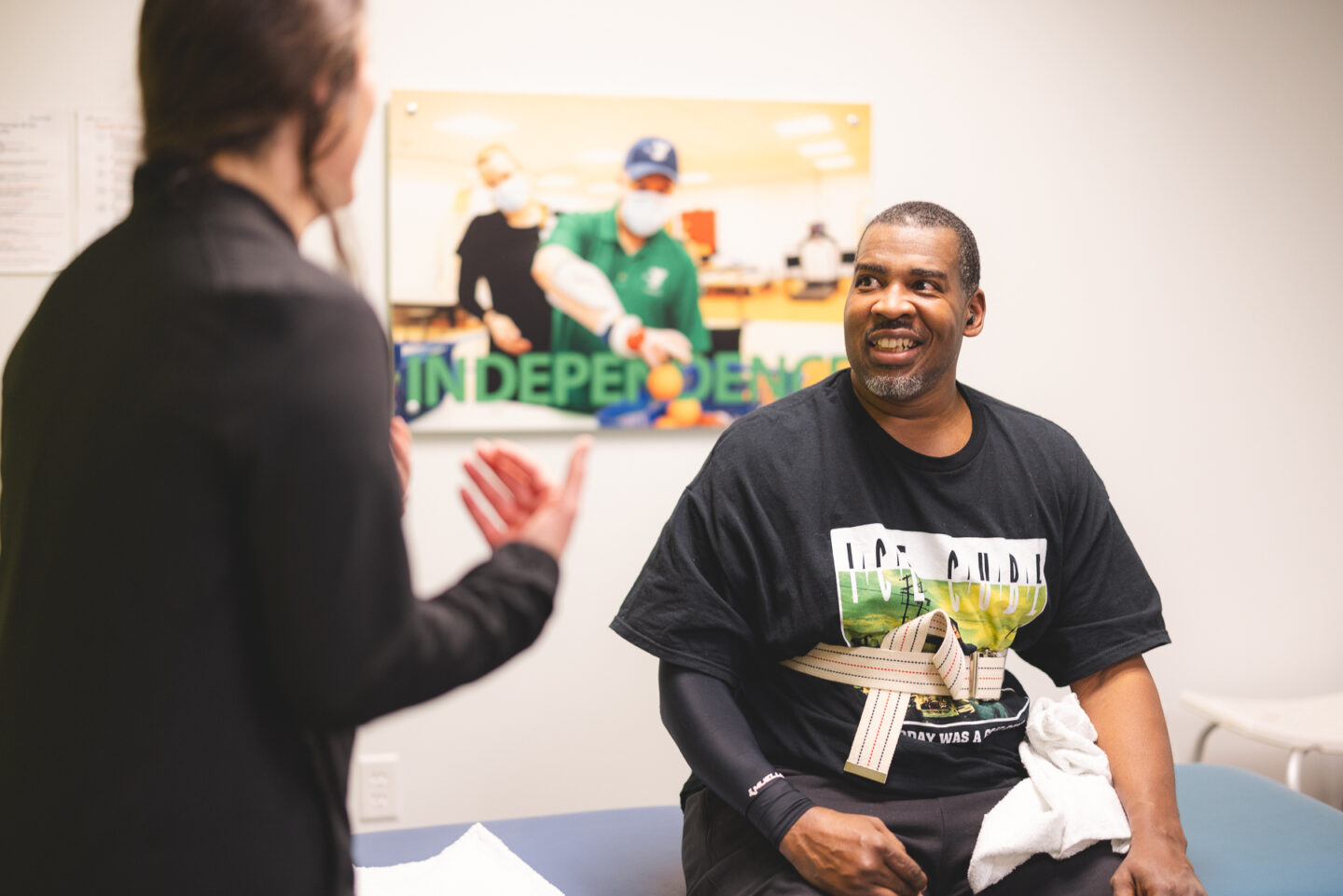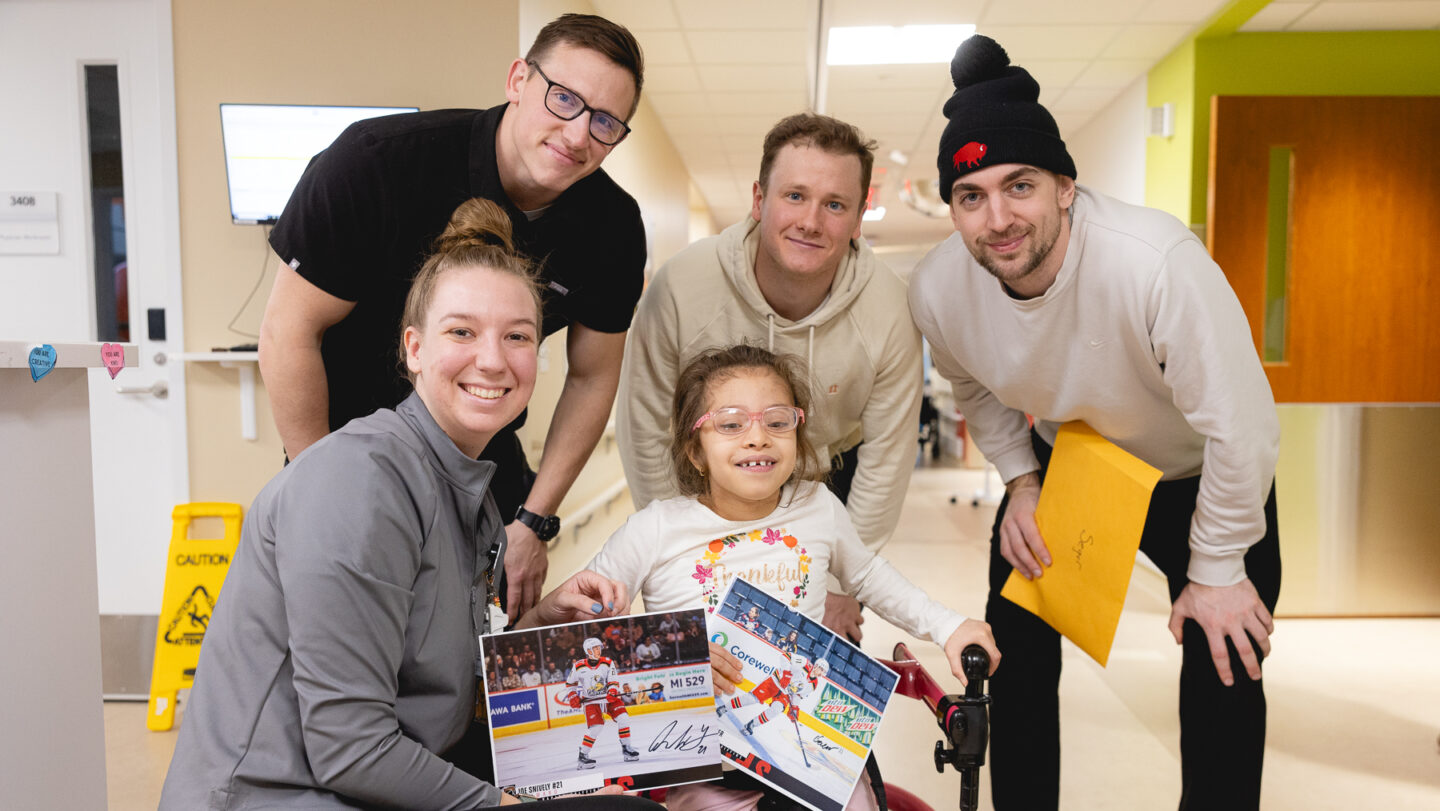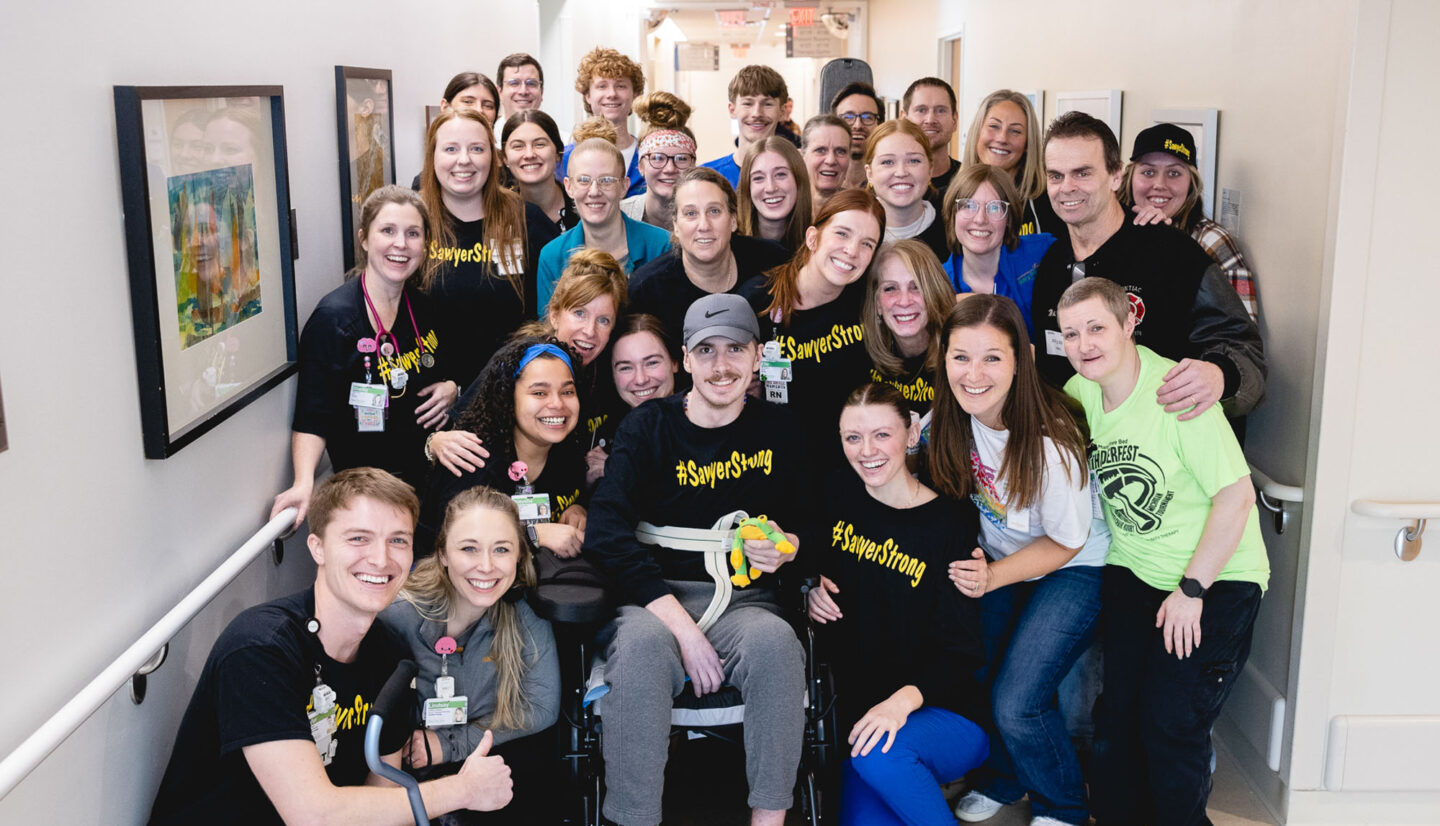Posted on February 11, 2012
Spinal Cord Injury Patient Gets Back on the Road
After suffering a spinal cord injury from a snowmobile accident, Dan Bolhouse closed the door to negativity.
Dan had been snowmobiling since he was a child. While on a trip with his buddies in 1999, he took an unexpected sharp turn too fast and crashed straight into a tree. He devastatingly injured the T7 vertebrae in his spine, causing him to be paralyzed from the waist down.
Dan’s parents chose Mary Free Bed Rehabilitation Hospital for his therapy. They did their research, and had facilities picked out from Denver to Miami. But it was a referral from a close friend that led them to choose Mary Free Bed. Dan believes it was a good choice because it allowed him to be close to his family for support.
He enjoyed the staff who worked with him in therapy because they pushed him to excel. Dan was very active before his accident and played all kinds of sports. “I appreciated the staff because they were able to do my therapy with the physical rigor that I was used to.”
Dan was in the inpatient Spinal Cord Injury Program for about two and half months. He completed the ParaStep Program, which involves a special walker to stimulate paralyzed muscles at different times in the gait cycle to allow for walking. Because of his competitive nature, he stayed motivated throughout his entire recovery.
After recovering from a spinal cord injury or other traumatic injuries, most people look forward to driving again. It’s often the last piece of the puzzle to restoring freedom and independence. Dan was no exception. He remembers being very eager to get back on the road.
“I knew it was a matter of when I am going to do this [drive again], not if,” he says.
In just a week and a half after completing inpatient therapy, he was confidently ready to be on the road again. Through the Driver Rehabilitation Program at Mary Free Bed, Dan quickly learned how to use the hand controls necessary to navigate his vehicle.
With the help of his uncle, he quickly found a car, and contacted Michigan Rehabilitation Services (MRS) to help set up and pay for his modified equipment.
“The process was easy because everyone was working towards the same goal” shares Dan.
One thing that Dan recommends for individuals seeking modified vehicles is to begin communication early with MRS when starting the process. This helps ensure everything is compatible and the paperwork is complete.
Getting behind the wheel again filled the gap in restoring Dan’s independence. “I regained the sense of freedom to come and go as I wanted.”
He now drives all the time – typically putting almost 40,000 miles on his car every year. In recent years, Dan has driven himself to south Florida to visit family and other places such as Baton Rouge and Dallas for wheelchair tennis tournaments.
“I would recommend driver rehabilitation to anyone,” Dan says with his customary positivity. “It can only benefit you and help you build confidence on the road.”





